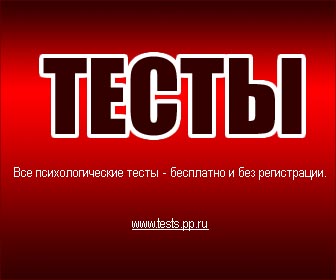< Нелепые законы штата Теннесси
Попрошайкам на улицах разрешается заниматься своим основным занятием только при наличии специальной лицензии на попрошайничество, получить которую можно за $10.
Sec. 20-28. Panhandling.
(a) [Generally.] The purpose of this section and legislation is to regulate and punish violations of the act of panhandling, rather than the status of the person.
Exclusion. The activities of panhandling do not include a person who passively stands or sits with a sign or other indication that one is seeking donations, without addressing any solicitation to any specific person other than in response to an inquiry by that person.
Nothing in this section shall abrogate, or abridge provisions of City Code, Chapter 30, "Solicitation of Public Funds," or the laws of state and federal government, or those laws regulating non-profit, religious, educational, civic or benevolent organizations.
(b) Definitions. [For the purposes of this section, certain terms shall have the meanings ascribed to them in this paragraph, unless the context clearly indicates otherwise:]
Assault means assaultive offenses as set out in Tennessee Code Annotated sections 39-13-101, 39-13-102 and 39-13-103, and classed as criminal offenses.
For purposes of this City Code section 20-28, "assault" does not apply to "manner of panhandling" as set out in paragraph (f) hereunder and classed as a misdemeanor.
Aggressively beg means to beg with the intent to intimidate another person into giving money or goods.
Beg means to ask for money or goods as a charity, whether by words, bodily gesture, signs, or other means.
Donation means nay item of value, monetary or otherwise, accepted by a panhandler.
Exempt organizations mean any non-profit, religious, civic or benevolent organization described in Section 501(c) of the Internal Revenue Code of 1986.
Intimidate means to engage intentionally in conduct which would make a reasonable person fearful or feel compelled.
Also, for purposes of this section 20-28, a person commits the offense of intimidating others from exercising civil rights who:
(1) Injures or threatens to injure or coerces another person with the intent to unlawfully intimidate another from the free exercise or enjoyment of any right or privilege secured by the Constitution or laws of the State of Tennessee; or
(2) Inures or threatens to injure or coerces another person with the intent to unlawfully intimidate another because that other exercised any right or privilege secured by the Constitution or laws of the United States or the Constitution or laws of the State of Tennessee.
Obstruct pedestrian or vehicular traffic means when a person without legal privilege, intentionally, knowingly or recklessly walks, stands, sits, lies, or places an object in such a manner as another person or a driver of a vehicle to take evasive action to avoid physical contact.
Acts authorized as an exercise of one's constitutional right to picket, or to legally protest, and acts authorized by a permit issued pursuant to this section shall not constitute obstruction of pedestrian or vehicular traffic.
Panhandler is any person, other than an exempt organization, acting on his/her own behalf, requesting an immediate donation of money or exchange of any services; or any person, acting on his/her own behalf, attempting to sell an item for an amount far exceeding its value, or where said item is already offered free-of-charge to the general public, and a reasonable person would understand that the purchase is in substance a donation.
Panhandling is the solicitation of any item of value, monetary or otherwise, made by a person, other than an exempt organization, acting on his/her own behalf, requesting an immediate donation of money or exchange of any services; or any person, acting on his/her own behalf, attempting to sell an item for an amount far exceeding its value, or an item which already offered free-of-charge to the general public, and under circumstances a reasonable person would understand that the purchase is in substance a donation.
Pedestrian interference means the obstruction of pedestrian or vehicular traffic by aggressively begging which impedes the passageway or a pedestrian or vehicular traffic.
Permit means the permit required under this section 20-28.
Public place mean an area generally visible to public view and includes, alleys, bridges, buildings, driveways, parking lots, parks, plazas, sidewalks and streets open to the general public including those that serve food or drink or provide entertainment, and the doorways and entrances to buildings or dwellings and the grounds enclosing them.
(c) Permit required. Any person panhandling within the below described geographical or restricted areas shall be required to have a permit, as issued by the city treasurer, or his designee, in his/her possession at all times, subject to exhibition on demand by any person, and shall be subject to conditions as set out in the following paragraphs (d), (e), (f), (g), (h) and (i).
Restricted geographical areas. Without a permit, persons shall be restricted from panhandling in the following geographical areas:
Main Street Mall, and the connector streets.
Airport complex area.
Public parks, golf course, schools and playgrounds.
Municipal or governmentally owned offices.
Municipally owned recreational and exhibition buildings.
Central Railroad Station, and the connector streets.
Public library facilities.
Mid-South Fairgrounds complex area.
Public or dedicated thoroughfares.
Private properties or shopping malls, unless the owner, lessee, or person-in-charge has granted permission.
(d) Time of panhandling. Any person who panhandles after
sunset or before sunrise is guilty of a misdemeanor.
(e) Place of panhandling. Any person who panhandles when
the person solicited is in any of the following places is
guilty of a misdemeanor:
(1) At any bus, train, or trolley stop;
(2) In any public transportation vehicle or facility
including loading and unloading areas;
(3) In any vehicle on the street;
(4) On private property, unless the panhandler has
permission from the owner or occupant.
(f) Manner of panhandling. Any person who in a public place
panhandles in any of the following ways or manner is guilty
of a misdemeanor:
(1) By using profane or abusive language, either during the
solicitation or following a refusal;
(2) By panhandling in a group of two or more persons;
(3) By any statement, gesture, or other communication which
a reasonable person in the situation of the person
solicited would perceive to be a threat;
(4) By intimidating, obstructing pedestrian or vehicular
traffic;
(5) By assaulting or aggressively begging.
(g) False or misleading solicitation.
(1) Any person who knowingly makes any false, misuse, or
misleading representation in the course of soliciting a
donation is guilty of a misdemeanor. False or misleading
representations include, but are not limited to, the
following:
a. Stating that the donation is needed to meet a specific
need, when the solicitor already has sufficient funds to
meet the need and does not disclose that fact.
b. Stating that the donation is needed to meet a need which
does not exist.
c. Stating that the solicitor is from out of town and
stranded, when that is not true.
d. Wearing a military uniform or other indication of military service, when the solicitor is neither a present nor former member of the service indicated.
e. Wearing or displaying an indication of physical
disability, when the solicitor does not suffer the
disability indicated.
f. Use of any makeup or device to simulate any deformity; or
g. Stating that the solicitor is homeless, when he is not.
h. Stating the donation is for food but in reality is used
for "sidewalk" drugs, or illegal contraband.
i. Using and exposing minors/children to hazardous
conditions i.e., cold, heat, animals, weather and/or
strangers, to solicit funds.
j. To offer to sell newspapers, magazines, periodicals,
pamphlets for a price, which are offered free-of-charge to
the general public.
(2) Any person who solicits a donation stating that the
funds are needed for a specific purpose and then spends the
funds received for a different purpose is guilty of a
misdemeanor.
(3) This section and subsection establishes a single
offense. Evidence which establishes beyond a reasonable
double that the defendant violated the section or
subsection is sufficient for conviction and need not
establish which subdivision was violated.
(h) Accosting persons or obstructing traffic. Every person
who commits any of the following acts is guilty of a
misdemeanor:
(1) Who assaults, aggressively begs, intimidates or accosts
other persons in any public place or in any place open to
the public, for the purpose of panhandling or soliciting a
donation for immediate payment as defined in paragraph (b)
above.
(2) Obstructs pedestrian or vehicular traffic, or
interferes at a time when a person, or the vehicle, is not
in a position to walk or drive away.
(3) Who accosts other persons in any public place, or in
any place open to the public, for donations if it is a
general and known fact to all reasonable people that
appropriate institutions, organizations, or charity groups
exist who make available the same daily necessities and
needs at no cost.
(i) Penalties for violation. Any person found violating of
any one or all of the above subsections of section 20-28 is
deemed guilty of a misdemeanor and upon conviction thereof
subject to penalties as set under City Code section 1-8.
(Ord. No. 4211, § 1, 12-14-93; Ord. No. 4352, § 4, 8-15 95)

|


|


